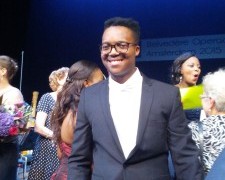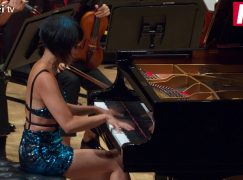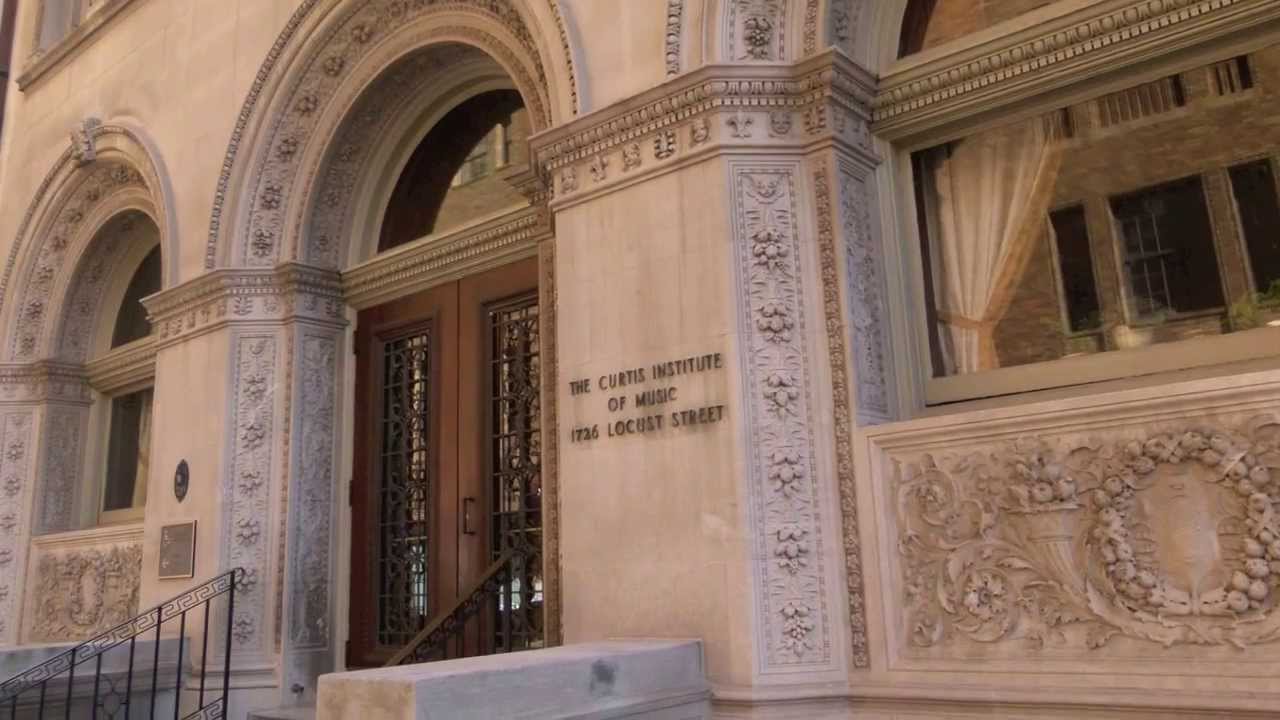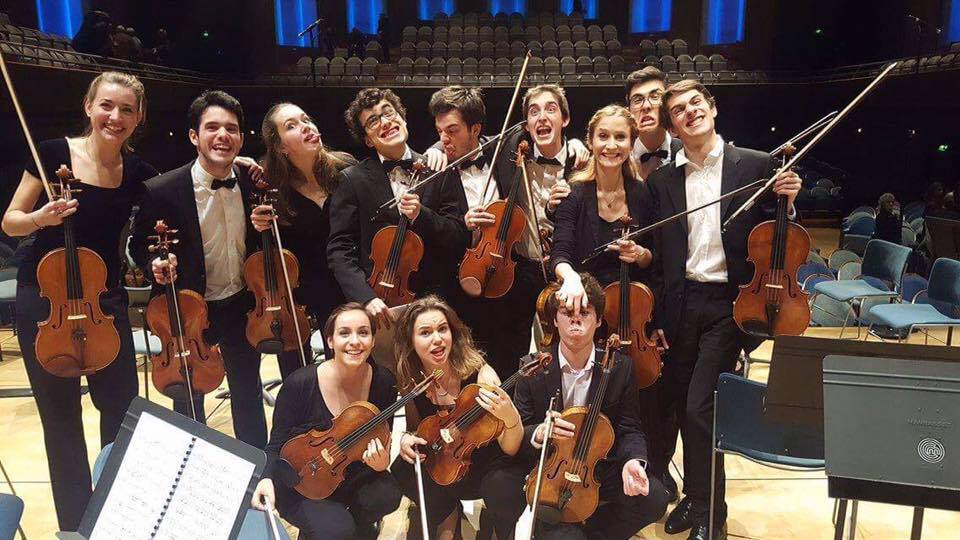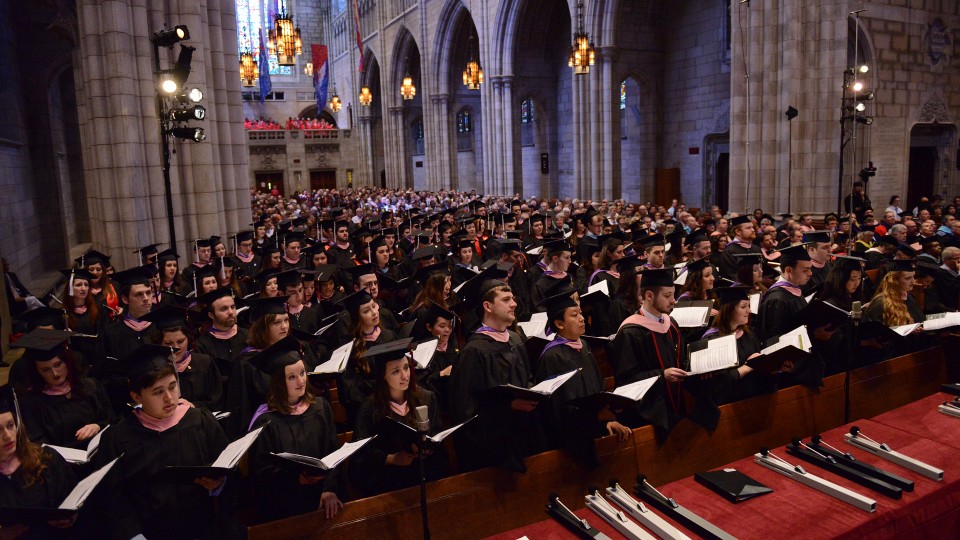I am sitting backstage at the Curtis Institute of Music, my Alma Mater, waiting for the concert to begin. I have spent a remarkable week here in Philadelphia – in awe of students, faculty, and the amazing school which has nurtured and inspired generations of musicians, and provided a welcome home to many of the past century’s finest performers, who found here a place to continue their life’s love of music through teaching, passing on their legacies to the next generations of musicians.
Curtis is different now – they have a new building – with 5 levels of dorm rooms, a cafeteria, 3 floors of rehearsal/teaching space and a large concert hall. In addition there are the original buildings – three mansions which belonged to Mary Louis Curtis Bok Zimbalist. The only child, and heiress to a fortune built from the publishing industry, she purchased three neighboring mansions in the 1920’s to house a tuition-free school for musicians. The school she founded is still tuition-free to all 175 students – ensuring that artistic promise, and not financial situation, is the sole consideration for acceptance.
With Leopold Stokowski, conductor of the Philadelphia Orchestra from 1912 to 1941, and the Polish pianist Josef Hoffmann, the Curtis Institute of Music was born. The violinist Carl Flesch and opera star Marcella Sembrich joined the faculty. From the first moment until closely before her death at age 93, Mary Luise Curtis Bok Zimbalist was a daily presence at Curtis – it was her vision which created this international, inclusive school where musicians learn by doing (over 200 concerts a year are produced at Curtis). Every morning, it is said, Mary was dropped off at Curtis in her maroon limousine, with her chauffeur decked out in matching colours. Her tradition of Wednesday Tea and the decadent Christmas Ball are still a beloved part of the Curtis experience.
My time here has been spent teaching private lessons (the level is incredible – 120 students from age 14-22 who have been accepted into this three-week summer program) – these kids come in slinging the big guns – Brahms and Bartok concertos are no sweat for them. Afternoons are chamber music coaching, masterclasses and orchestra. This program is six years old. Only seven students have moved from this camp to being accepted as students at Curtis. It makes me wonder – how good do you really have to be – how can your Brahms Concerto rise above the others? Today, a young violinist from England asked me for advice on how to get into Curtis – this year there are only 2 violin openings. I encouraged him to continue to search for his truth – to follow his heart and find his voice.
When I flew here to audition as a young woman, I was full of vim and vigor – having passed the first round (a video of Bach, Paganini, Mozart and Sibelius concerti), I was eager to play in person. I had experienced enough success to have confidence in my abilities – to know I knew how to prepare and be able to lay down a solid and passionate performance. It all turned out well – I got one of the few coveted spots, and was heading to Curtis in the fall, to work with Felix Galimir and be immersed in the true European traditions of classical music.
Sitting here, backstage, talking to the other alumni and performers on tonight’s mixed program, I began to ask questions. As a student, the confidence that brought me through that audition process quickly disappeared. I felt lonely, isolated, insecure, and unworthy. Surrounded by a swath of seemingly larger-than-life superstars, who entered Curtis with recording contracts, management, first prizes from the Tchaikovsky Competition, I was frozen and unable to even practice at school, afraid that I would be exposed as a charlatan.
It turns out that all of us backstage felt the same way – these incredible musicians with whom I have played and taught beside all week – they were crushed by self-doubt, overwhelmed by the newness. But, they said, maybe going through this then was good for us – toughened us up and gave us the tools we needed to succeed. Maybe everyone goes through this, but we just did it a little earlier than other people. They, like I, pushed through these feelings and forced ourselves to perform, to go out there, and learned to curb fear, to harness our doubts and use this to our advantage. You learn to stop caring what other people think at some point – you are forced to become a clearer and more defined and honest version of yourself. I guess, in the end, that is what Curtis is looking for. The germ of individuality, the determination, the ability to think for yourself.
The concert is over – I have not been that nervous in many many years – my bow was even shaking at one point during the Janacek Sonata. But, I decided at that moment to use that sound, develop it – it was such a tender and frail sound, just as Janacek might have wanted at that moment. I owned my shaky bow, and was proud of it.
